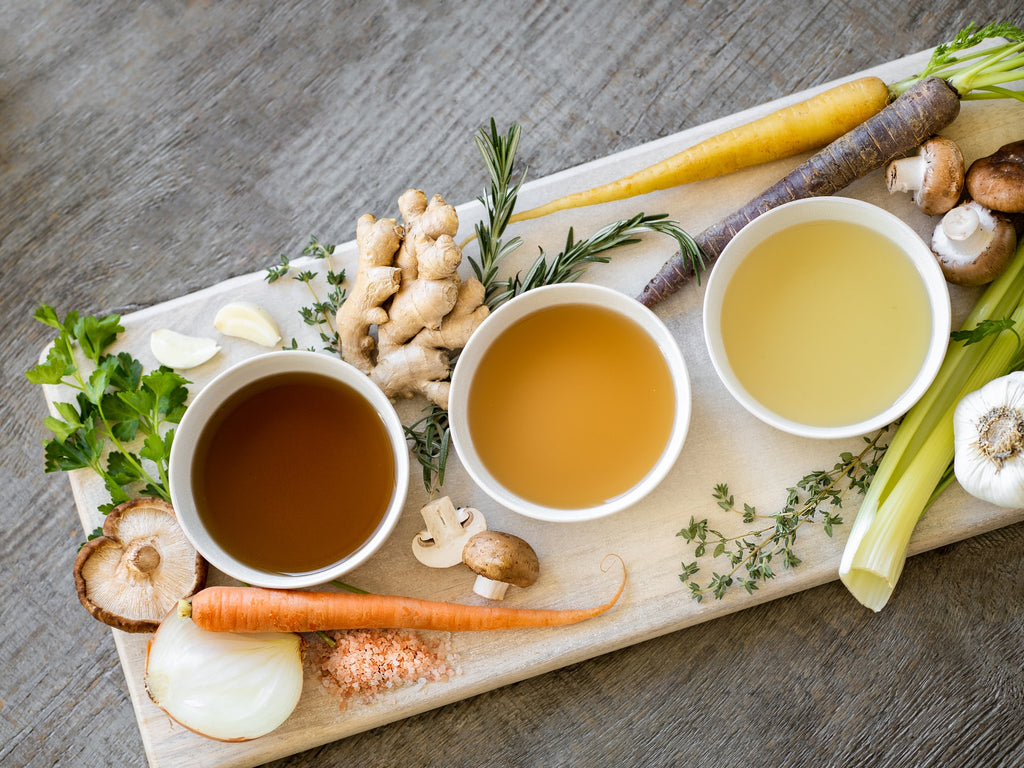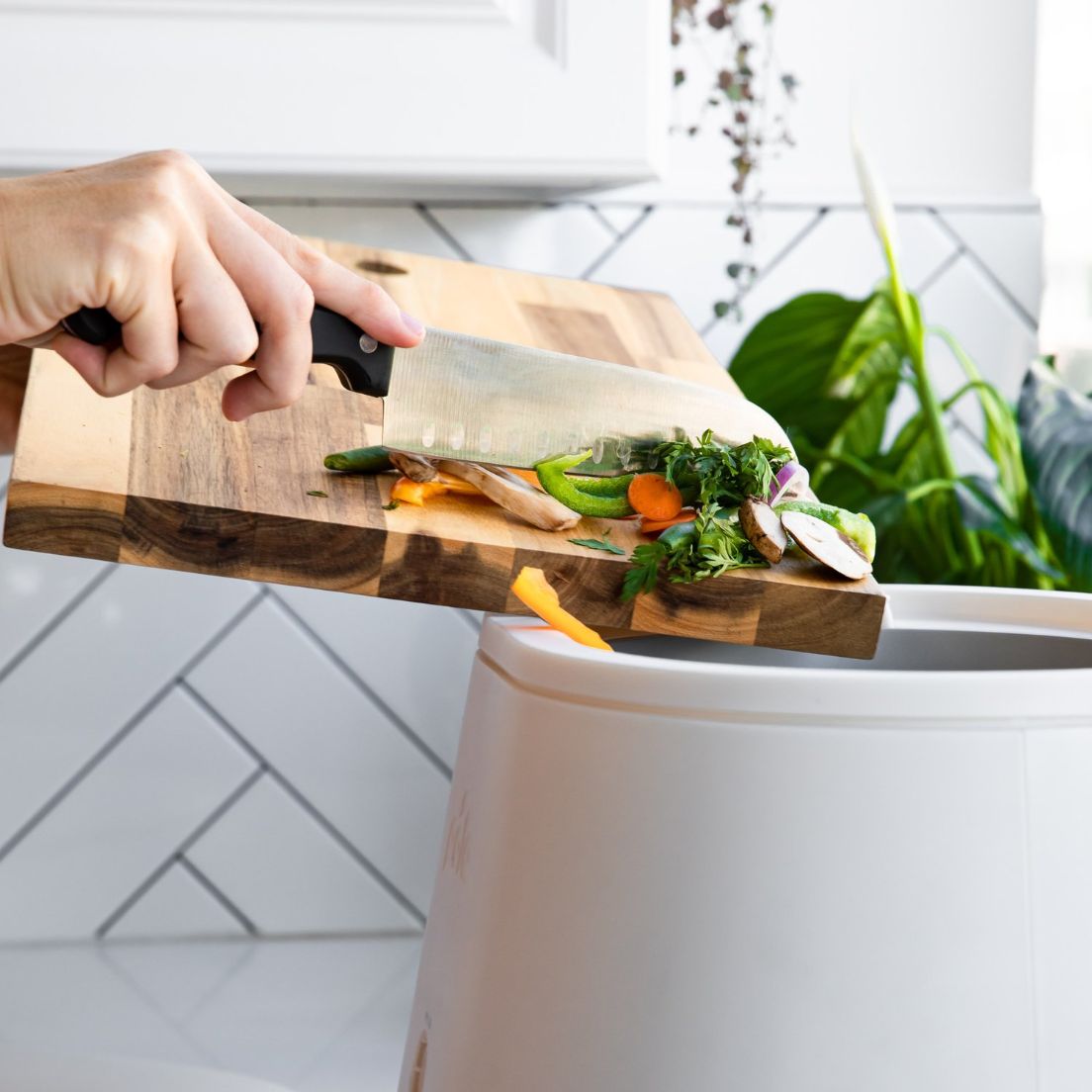
Food waste is a major issue that’s happening continually on a global scale, but countries with a higher income contribute to 40% of food waste. In North America alone, there are more than 300 billion pounds of food waste every year. Since many people tend to purchase food that spoils before consumption, it’s vital to focus on managing our food waste and engaging in sustainable practices daily. Besides, throwing away more food than we consume is detrimental to our planet.
Imagine diminishing your food waste by 50% or higher! Luckily, Lomi and other composting systems make it easy to compost any food waste into nutrient-rich soil. When you begin using Lomi for composting, you’ll cut costs, lessen the amount of waste put in landfills, and reduce your overall carbon footprint. Are you ready to start reducing your food waste with the press of a button?
Let’s dive into some of the positive results that arise when we sustainably manage our food resources.
Why Reduce Food Waste?

Below is a list of reasons why reducing your food waste will help make the world a better place:
- Economic benefits: When you’re proactive about diminishing food waste each week, you’re saving money in the long run. Buying less food equates to far less waste, but it can also help you save big time
- Environmental benefits: As soon as you start throwing away fewer resources, particularly food, you’re making strides to reduce your carbon footprint. Food composting is a great way to lessen how much wasted food we send to landfills or combustion sites
- Social benefits: Unfortunately, more and more low-income countries are struggling with food loss, particularly in farming communities during peak harvest. Donating unconsumed food items to communities without food security can make a meaningful social impact
Now that we know the benefits of reducing our food waste, how exactly can we work to reduce this global issue from spreading further?
Ways to Reduce Food Waste

Generally, trash is very harmful to our planet, but any food that we don’t consume is also a huge factor in emitting global climate change. As consistent food waste overwhelms combustion facilities and landfills, it’s not too late to do our part.
There are so many ways to reduce food waste and become more environmentally conscious at home. Together, we can build the habit of recycling our waste. Below are some suggestions to help you get started:
Plan Grocery Lists

Grocery shopping without a plan can be dangerous, leading often to more spending than anticipated. As you write down your weekly shopping list, focus on any staple ingredients you’ll need for the week. Have you determined which days you’ll be eating at home this week? Do you know what kind of meals you might cook? To avoid overspending on food, plan out your meals before venturing to the grocery store.
Start Food Prepping

To keep your perishable items fresh and accessible, make food prepping a weekly habit. Whenever you get home from grocery shopping, wash, dry, and pre-slice your fresh fruits and vegetables. Don’t forget to place them in the fridge by storing them in a container! Meal preparation proves helpful as well. Cooking fresh foods in advance, freezing perishable items you can’t eat just yet, and freezing meals for leftovers are easy ways to make certain your food doesn’t go to waste!
Store Food Properly

Perishable foods ripen and expire quickly, so try to cook or eat from home more often! This includes maximizing freshness by utilizing proper storage solutions, such as clear glass containers. You can even store your pre-sliced fruits and vegetables right in the fridge for easy accessibility.
Discover Food Preservation Methods

Speaking of proper food storage, finding new ways to preserve food can be fun! For any folks that like to be creative in the kitchen, try pickling or canning food items. This can be a wonderful way to increase an item’s shelf life and preserve freshness. You can pickle onions, eggs, cucumbers, and much more. Or if you have ripe bananas, you can never go wrong with baking some banana bread.
Check All Expiration Dates

You should always check to see if you’re storing your perishable items properly, so you waste fewer ingredients and save money. Remember to look at all expiration dates before heading to the grocery store, which includes “sell by” and “use by” dates. If an item doesn’t look, smell, or taste how it normally does, you may have to throw it away. If you think some of your food will last a bit longer, write down an itemized list of what needs to be used up soon before you go to the grocery store. Bonus points if you can incorporate anything that needs to be eaten into your planned meals for the week!
Make Bone Broth or Vegetable Stock

Have any leftover food scraps lying around your kitchen? Sure, you do! If you have any animal drippings, for instance, you can make a great bone broth. For a vegetarian option, boil down any vegetable scraps to make a delicious stock. The possibilities are endless, and best of all, soup freezes really well.
Compost Food Scraps
Finally, composting is an incredible way to conserve our food resources. Unfortunately, landfills do not compost food scraps, so if you can make composting an environmental habit, you’re contributing greatly to the reduction of methane gas. Every time food waste enters a landfill, it produces methane gas, which is very harmful to the environment.
How can you start composting at home? With Lomi, you will have the power to create useful nutrient-rich dirt, right from the comfort of home. Lomi is also a compact, user-friendly composting system that produces consistent, nutrient-rich results, greatly reducing everyday food waste and breaking down any approved bioplastics. Before long, you’ll have enough soil to grow a beautiful home garden!

Why Should We Care About Food Waste?

While high-income communities cause food waste, many low-income countries and farming communities suffer greatly from food loss. Every day, fresh food is thrown away and sent to landfills, contributing greatly to food insecurity. Instead of ridding our homes of what can’t be consumed in time, we could look for resources to assist the countries in need. Whether you’re making donations of untouched food items to food banks, composting food scraps to further reduce the size of your garbage bags, or planning out your weekly grocery trips to save money and dine out less, these are all positive changes we can make to save our planet.
Interested in composting your food waste? Lomi makes breaking down food waste simple and seamless. All you have to do is press a button and Lomi gets to work! For more information on Lomi’s composting cycles, check out one of our past blogs here.
Are you ready to join the Pela mission and lessen your carbon footprint by composting at home? Join our community and reserve your Lomi today!
